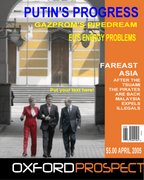
Nick Robinson, the BBC's new political editor, said last week that politicians and political broadcasters had become a squabbling couple, and it was time they put their rows behind them.
At the risk of upsetting the neighbours, I think this weekend's revelations about John Humphrys's speaking engagements show there is still plenty to squabble about. It's best not to let it fester. Nick and I debated some of the issues at the Edinburgh TV festival last week in front of an audience of TV journalists and executives. My argument was that much of the reporting of politics helped foment cynicism, apathy and disengagement. It was categorically not my case that politicians are blameless; but the current way in which politics is portrayed on many TV and radio news programmes greatly increases the tendency for voters to turn away from political debate.
Too much political broadcasting on radio and television sees its role not as a mission to explain but as a mission to destroy. In the speech revealed this weekend, Humphrys says the BBC's role is 'to take on' the government. 'That ultimately is what the BBC is for,' he says. The result of this conception of journalists' role is a pernicious culture in which news programmes seek to pit themselves against politicians, rather than to elicit information about policies.
The constant aggression towards every political announcement breeds cynicism about what politics can achieve, and about democracy itself. An effect of this misguided approach is that political broadcasters increasingly take on the role of pontificating and editorialising, instead of doing the mundane but more important job of simply reporting the views and actions of those seeking election. Jon Snow recently said: 'At this election it was completely permissible for political editors, Andrew Marr, Nick Robinson and Adam Boulton, to stop covering the campaign and opine in a way we've never seen before.'
An example of this was Robinson's challenge to the Prime Minister at the launch of Labour's campaign poster which said the Conservatives were planning £35 billion of spending cuts compared to Labour's plans. Robinson shouted at the Prime Minister: 'Can you only win by distorting your opponents' policies?' He went on: 'You know they don't say that ... Less is not a cut. You can't cut money that hasn't been spent.'
Many people shared Robinson's view of the Labour poster. The Tories did. Others thought the poster an accurate description of the Tories' plans. The point is that it is at least arguable whether the poster was right or wrong. The question is whether it is the journalist's role to come to a decision on such a controversy on behalf of viewers and to state as fact that Labour's poster is wrong and a distortion. I think not. We can't vote out the journalist if we don't agree with his views, so it is an abuse to use his position as a reporter to promote them.
Robinson's predecessor, Andrew Marr, said last week that it was now time to take a stand against the opinions-first-facts-later culture that had grown up, and return to straight reporting. But he defended the way that political editors now pontificate in airtime previously given to politicians to communicate. 'I'm only there, and my colleagues are only there, because the politicians can't do it properly for themselves,' he said. That's what military juntas in South America used to say, just after they had stormed the parliament. This macho, self-important journalistic style leads to inaccuracies and distortions, which misinform the public about politics. Where mistakes are made, the cavalier, untouchable attitude of the BBC remains firmly in place.
The new complaints procedure is toothless and slow. Nine months ago Michael Howard quite rightly complained about an abusive Newsnight hatchet job on him. It took until last week for the supposedly independent BBC complaints unit to decide that Newsnight was largely blameless. As Robinson pointed out last week, it is easy to dismiss my criticisms as the shrieks of a former spin doctor, scarred by the daily sparring between broadcasters and political parties. But it is not just spin doctors and politicians who think that citizens are being short-changed by much political coverage.
John Cole, the great former BBC political editor, has lamented the passing of straight reporting of politics, 'What worries me,' he said, is that 'we may have spoiled the public appetite for serious politics delivered comparatively straight. Have we created a public reluctance to make the effort needed for a worthwhile understanding of politics?'
The revelation that one of the BBC's main interviewers charges big bucks to deliver speeches in which he states his belief that all ministers are liars confirms the BBC has a great deal to do to reverse the trend Cole identified.


No comments:
Post a Comment